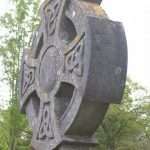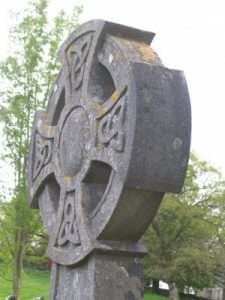We seem to be talking about entirely different things
The Church of Ireland Theological Institute, the training place for Church of Ireland clergy, details all its courses in its online handbook. The syllabus includes a course on “Mission, Culture and Social Context,” which has among its intended learning outcomes,
To understand the complex nature and multi-methodological dimensions of practical theology and to develop the skills necessary to articulate a ‘local theology’ to underpin Christian mission and ministry in contemporary Ireland.
It is almost thirty years since I studied at the Institute, the Church of Ireland Theological College as it was known in the 1980s, and wonder if the gap between the best efforts of the staff of the Institute and the reality of many local parish situations is not growing wider and wider. When the Institute speaks of “the skills necessary to articulate a ‘local theology’ to underpin Christian mission and ministry in contemporary Ireland,” I wonder if even the wisest and most learned of our teachers could find a theology that would be suitable in some of the circumstances that must faced by some of our parish clergy.
Clergy trained in the Anglican ways of understanding authority as something derived from three strands, from Scripture, from Tradition, and from Reason, may differ about which of the strands should be pre-eminent, Evangelicals choosing Scripture, Catholics looking to Tradition, and Liberals preferring Reason, but there is, at least a degree of consensus that there are identifiable sources for people’s views. To have agreed grounds upon which discussions might take place facilitates dialogue, even if that dialogue does not lead to agreement.
It is hard to have a conversation about faith when there is no agreement as to what “faith” might mean. What training can there be for situations where clergy are faced by people whose understanding of faith is something formed by local history and personal traditions and which derives little from sources that Anglicans have traditionally regarded as authoritative? How does one speak of concepts such as “redemption” and “salvation” in contexts where “local theology” approximates not to anything one might find in writings on mission, but to complex sets of loyalties to family, building and place? How does one talk about mission when trying to address thinking that is not articulated? In a postmodern world, how does one counter the arguments of those who regard their own beliefs as authoritative as theological traditions that have come down through the twenty centuries of the history of the church? How does one attempt “mission” when the conversation is about entirely different things?
Trying to teach theology today is an unenviable task, if someone develops a method of doing local theology that is efficacious in some of our situations, it would change the face of our church.



Comments
We seem to be talking about entirely different things — No Comments
HTML tags allowed in your comment: <a href="" title=""> <abbr title=""> <acronym title=""> <b> <blockquote cite=""> <cite> <code> <del datetime=""> <em> <i> <q cite=""> <s> <strike> <strong>